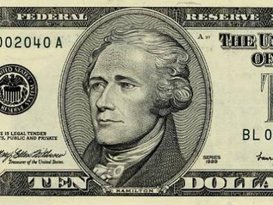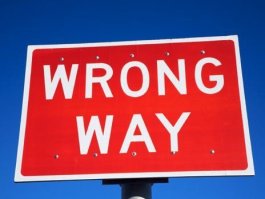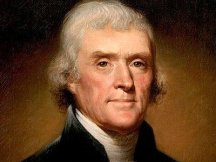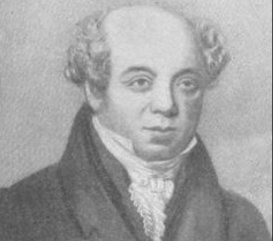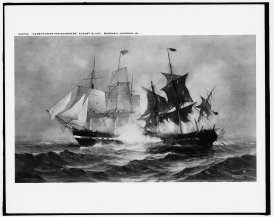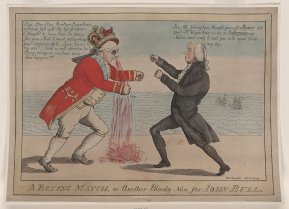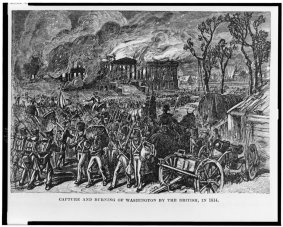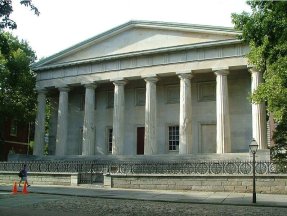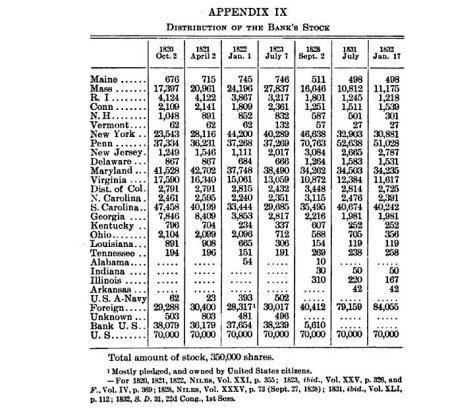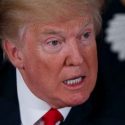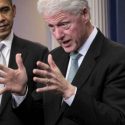Business Insider – by Lucas Kawa
Hailed as the pioneers of modern finance, the Rothschilds have amassed an incredible fortune that has lasted for centuries.
The family’s vast wealth and secrecy have also made it a target of countless conspiracy theories.
If you believe everything you read, the Rothschilds have facilitated the assassination of multiple U.S. Presidents, control the world’s money supply, and have a network of clandestine agents that served as puppet business associates during the family’s rise to power.
While most of these theories fail to present a shred of evidence, we thought we’d investigate one of the more famous stories regarding the family that has ever been told: that Nathan Rothschild was the driving force behind the War of 1812.
Conspiracy theorists allege that:
Lines between truth and inaccuracies may have blurred as time passed, but it’s clear as day that this war wasn’t a one-man show.
The story starts with Alexander Hamilton, the father of the First National Bank of the United States.
In 1791, Washington was undecided about a central bank and asked Hamilton for advice after Thomas Jefferson and Attorney General Edmund Randolph advised against it.
Hamilton wrote nearly 15,000 words in what was evidently a successful rebuttal; Washington signed the bill, which provided a 20-year charter for the First National Bank.
Source: Federal Reserve of Philadelphia
Conspiracy theorists insist Hamilton was a Rothschild agent.
He is often accused of acting in the Rothschilds’ interests by facilitating the creation of a central bank. The following quote is commonly used in online postings to connect Hamilton to Rothschild:
Alexander Hamilton married into the Rothschild family December 14, 1780, Alexander Hamilton was born Alexander Levine, of Jewish lineage, in St. Croix, the West Indies. After changing his name and his geographical situs, he married Elizabeth Schuyler… [The Intimate Life of Alexander Hamilton, by Allan Hamilton 1910]
Source: The Robot’s Rebellion
But the quote they base that on doesn’t appear in the referenced material.
New York Historical Society
Check it out here for yourself — the book in question does not even mention the Rothschilds. Other ‘fringe’ books like No More Taxes by John Paul Mitchell insist that Hamilton married into the Rothschild family.
Here’s what we actually know about Hamilton’s in-laws: the father, Philip Schuyler, was a General during the Revolutionary War, while the mother Catherine instituted a scorched earth policy to deprive the British of food.
It’s true that the First National Bank was dominated by foreign owners.
Dr. Thayer Watkins of San Jose State University claims that 70 percent of the central bank was owned by foreigners, and notes that Britain was the primary source of capital for the U.S during this era.
Given that the U.S. relied on British capital, and British banks were dominated by the Rothschilds, it’s safe to say the family had a substantial stake in the First National Bank.
Source: San Jose State University
When the bank’s charter came up for renewal in 1811, the motion failed in a very close vote. Not good for foreign investors like Nathan Rothschild.
Thomas Jefferson and Andrew Jackson were vociferously opposed to a central bank, and believed the American people (through Congress), not private or foreign interests, should dictate the supply of money.
Source: Vers Demain Journal
Conspiracy theorists argue that Nathan’s influence over financial affairs gave him the stature to force the entire nation into war. In England, Nathan reportedly issued the following chilling ultimatum.
Upset at losing this profitable monopolistic venture, Nathan is said to have furiously declared, “Either the application for the renewal of the charter is granted, or the United States will find itself involved in a most disastrous war.”
He then ‘instructed’ the British to “Teach these impudent Americans a lesson. Bring them back to Colonial status.”
These quotes have not been verified, and serve as the basis of the Rothschild 1812 conspiracy thesis.
Source: Vers Demain Journal
In this version of history, Nathan Rothschild caused the War of 1812 in order to load America up with debt.
This ignores several legitimate causes of the war, such as:
- England’s desire to keep the U.S. from helping Napoleonic France;
- Restrictions on trade;
- Impressment of U.S. citizens into the Royal Navy; and
- British affronts to U.S. autonomy, as demonstrated by the Chesapeake-Leopard affair.
In the same year, the Rothschilds supposedly legitimized their U.S. banking interests using another Rothschild agent.
Moses Taylor, another alleged Rothschild agent, founded the National City Bank of New York in 1812, which conspiracy theorists claim is an extension of the Rothschild banking conglomerate.
National City Bank would later become Citibank.
Source: Vers Demain Journal
But a prominent historian insists that the War of 1812 was, in fact, all about commercial supremacy.
As explained in this excerpt from Reginald Horsman’s The Causes of the War of 1812:
Some restrictions on neutral commerce were essential for England in this period. That this restriction took such an extreme form after 1807 stemmed not only from the effort to defeat Napoleon, but also from the undoubted jealousy of America’s commercial prosperity that existed in England. America was unfortunate in that for most of the period from 1803 to 1812 political power in England was held by a group that was pledged not only to the defeat of France, but also to a rigid maintenance of Britain’s commercial supremacy.
But conspiracy theorists point to the fact that during the war, U.S. public debt surged.
The Bureau of the Public Debt reports“Total public debt increased from $45.2 million on January 1, 1812, to $119.2 million as of September 30, 1815.”
Source: Bureau of the Public Debt
And so, in desperate need of funds, the U.S. reinstituted a central bank in 1816.
The Philadelphia Fed reports:
“In effect, the country found itself in circumstances similar to those after the Revolutionary War: mounting debt from a war with England, soaring prices, and devalued money from rising inflation.”
As such, President James Madison authorized the creation of the Second Bank of the United States.
Source: Federal Reserve of Philadelphia
Foreign investors, like Rothschild, dominated this bank, too.
The Second Bank of the United States, by Ralph Charles Henry Catterall
Foreign holdings of the Second Bank of the United States grew from just under 30,000 shares in 1820 to over 84,000 shares in 1832. James de Rothschild of France was rumored to be a principal investor in the new central bank.
Source: The Second Bank of the United States, Vers Demain Journal
So even though Nathan wasn’t the mastermind behind the War of 1812, the conflict and its results definitely swelled the family’s riches.
The Rothschild 1812 theory is flawed from the start from its assumption that Alexander Hamilton acted as an agent of the family – which would presumably be for his personal gain – because Hamilton died destitute.
The Rothschilds would go on to perfect the strategy of lending to countries on each side of a conflict over the following century of chronic warfare.
Source: Business Insider




